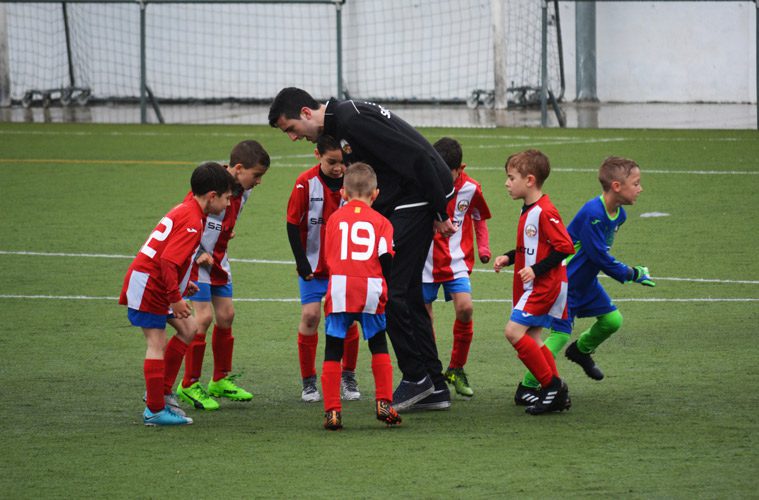Listen to this article
Listen to this article
Loading
Play
Pause
Options
0:00
-:--
1x
Playback Speed- 0.5
- 0.6
- 0.7
- 0.8
- 0.9
- 1
- 1.1
- 1.2
- 1.3
- 1.5
- 2
Audio Language
- English
- French
- German
- Italian
- Spanish
Open text
how to find motivation in times of stress or change. change is inevitable. we, as humans, are constantly changing our styles, our preferences, our leaders, our opinions, our locations, times of peace, times of conflict. we experience different seasons. the very state in which we live in is the definition of change. but, we like to be in control. we like to know when the change is happening, what it’s going to impact, who it’s going to involve, where it’s going to take place. what we fail to recognize is so much of it is out of our hands, and when we do, we go into panic mode. the change cycle, co-founded by change experts ann salerno and lillie brock, is a cyclical explanation to the way we experience different types of change and is comprised of six stages, ranging from negative to positive, external to internal, temporary to sustainable. beginning with loss to doubt, to discomfort, to discovery, to understanding, and lastly to integration. the change cycle begins with loss. recognizing the loss that is taking place in our lives is not a bad thing. in fact, it is healthy to an extent. it helps us to realize that change is happening and can ultimately propel us into a perspective of finding good on one side of the spectrum. it’s unhealthy and rather detrimental to remain in it. the change cycle, which can be found here, is an incredible resource in identifying where we stand in the midst of change and how we can move forward. whichever stage we find ourselves in, it is worth asking ourselves who we can turn to. change is hard enough to do on our own, but it is change that invites community that will already find its success because change is occurring with a foundation of care. sometimes, reaching out to people, asking for help and being vulnerable in times of need are the hardest things to do. but, it’s only lightens the load, softens our hearts. it reminds us that there is hope in humanity. “the paradox of finding motivation through fear” is the title of an article written by new york times writer carl richards. he discusses that a factor of constant movements is the inspirational threat of impossibility. it is the mystery of whatever the outcome will be, the necessity of defending and fighting for something. stepping out in boldness, whether it’s a big step or a little one, is a way to constantly be in search of greater value. think about it, when we sit in the knowledge of secure comfort and familiarity, we don’t experience growth, but rather a perpetuation of the same thing. it might be a good thing, but it can be great. sitting in the same thing can also bring about boredom and neglected gratitude. we lose sight of our purpose. change, many times, can be a good thing when it is recognized, when it is invitational and when it is maneuvered with a perspective of thankfulness.
Open context player
Close context player
Plays:-Audio plays count
how to find motivation in times of stress or change. change is inevitable. we, as humans, are constantly changing our styles, our preferences, our leaders, our opinions, our locations, times of peace, times of conflict. we experience different seasons. the very state in which we live in is the definition of change. but, we like to be in control. we like to know when the change is happening, what it’s going to impact, who it’s going to involve, where it’s going to take place. what we fail to recognize is so much of it is out of our hands, and when we do, we go into panic mode. the change cycle, co-founded by change experts ann salerno and lillie brock, is a cyclical explanation to the way we experience different types of change and is comprised of six stages, ranging from negative to positive, external to internal, temporary to sustainable. beginning with loss to doubt, to discomfort, to discovery, to understanding, and lastly to integration. the change cycle begins with loss. recognizing the loss that is taking place in our lives is not a bad thing. in fact, it is healthy to an extent. it helps us to realize that change is happening and can ultimately propel us into a perspective of finding good on one side of the spectrum. it’s unhealthy and rather detrimental to remain in it. the change cycle, which can be found here, is an incredible resource in identifying where we stand in the midst of change and how we can move forward. whichever stage we find ourselves in, it is worth asking ourselves who we can turn to. change is hard enough to do on our own, but it is change that invites community that will already find its success because change is occurring with a foundation of care. sometimes, reaching out to people, asking for help and being vulnerable in times of need are the hardest things to do. but, it’s only lightens the load, softens our hearts. it reminds us that there is hope in humanity. “the paradox of finding motivation through fear” is the title of an article written by new york times writer carl richards. he discusses that a factor of constant movements is the inspirational threat of impossibility. it is the mystery of whatever the outcome will be, the necessity of defending and fighting for something. stepping out in boldness, whether it’s a big step or a little one, is a way to constantly be in search of greater value. think about it, when we sit in the knowledge of secure comfort and familiarity, we don’t experience growth, but rather a perpetuation of the same thing. it might be a good thing, but it can be great. sitting in the same thing can also bring about boredom and neglected gratitude. we lose sight of our purpose. change, many times, can be a good thing when it is recognized, when it is invitational and when it is maneuvered with a perspective of thankfulness.
Listen to this article

















